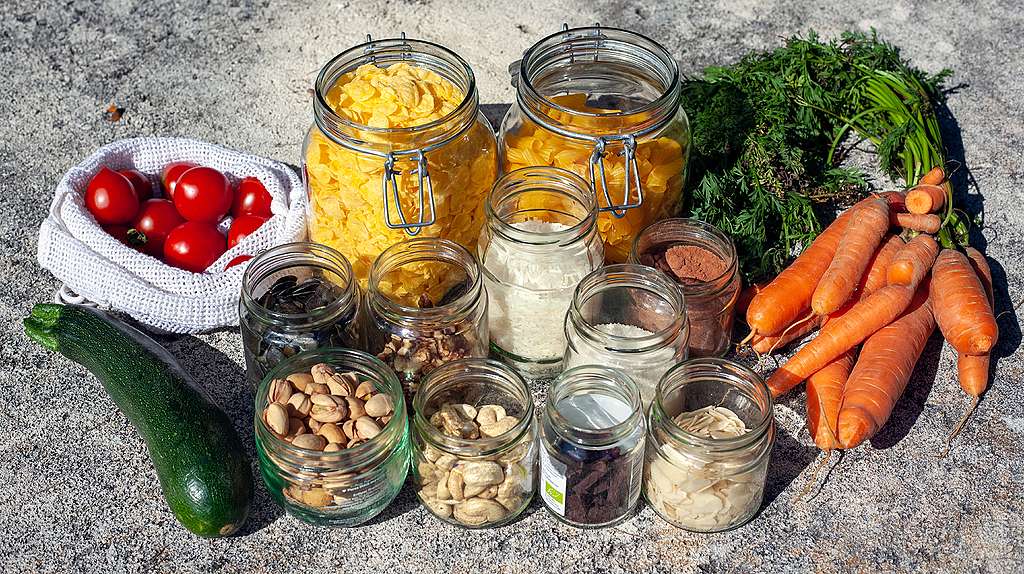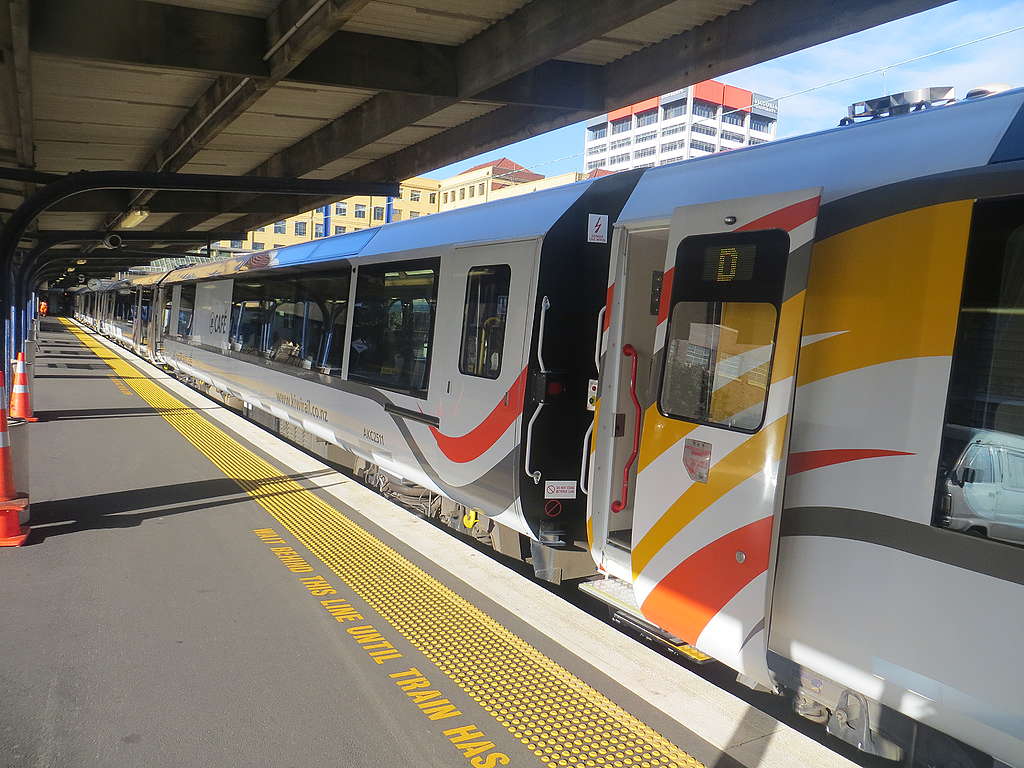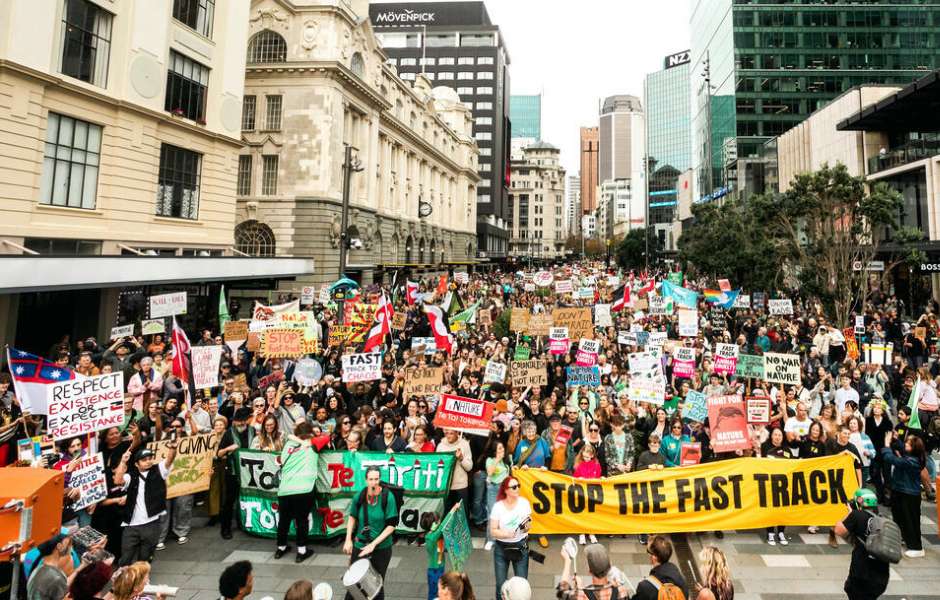Zero waste living tips from an expert – guest post.
I’m a card-carrying zero waste lifestyler. In 2015, my partner Liam and I started living without a rubbish bin. We saw this as a good entry point for reducing our footprint on planet Earth.
In our first five years of zero waste living we sent just 7.6kg of rubbish to landfill between us. We limited our recycling to two wheelie bins of paper and cardboard, and eight crates of glass. In 2017 we started The Rubbish Trip, travelling New Zealand for three years giving free workshops to community groups and schools about household waste reduction. We now work fulltime on all things zero waste – from workshops to advocacy, community organising, and supporting businesses.
Lots of people (especially journalists…) ask us for our ‘top tips’ for zero waste living. The list we reel off is usually a bunch of very practical things, like setting up a compost heap and avoiding single-use plastics. However, in reality, zero waste living is about much more than this.
In this post I’ll talk about the two sides of the zero waste lifestyle, and share a more complete list of ‘top tips’ for reducing your footprint and making a difference!

There are Two Sides to ‘Eco Living’ and Zero Waste Living
Walking the talk on environmental issues is important both practically and ethically. I’m allergic to any trivialisation of individual action. After all, we all have environmental footprints and therefore a role to play. And there are things we can do in our own lives to make a difference, while recognising that not everyone is in the position to do so to the same extent.
I also see grassroots lifestyle change as a powerful diving board into advocating for wider systemic change. I think it’s impossible to care so much that you go waste-free, yet feel disinterested in wider change too. I know basically no zero waste lifestyler who believes that the world’s environmental problems are all about ‘personal responsibility’, while companies who benefit from pollution and waste get a free pass.
In the current system, there are limits to what we can achieve in our own lives. Despite my best efforts, I still have a waste footprint because supply chains aren’t zero waste. I might put an unpackaged kiwifruit from the supermarket into my cotton reusable bag, but it’s been grown, packed, and transported using disposable products. We need a systems focus even if all we want is to realise our own personal zero waste aspirations.
In addition to asking for ‘top tips’, lots of people also ask me and Liam what we find most difficult about zero waste living. My hunch is they’re expecting to hear something like ‘it’s hard having to make my own pasta from scratch’ or ‘I miss Whittaker’s chocolate and Coca-Cola’.
The fact is, I don’t find the practicalities of zero waste that hard. What I DO find really hard is how not normal zero waste living is.
We need system change and zero waste living
Our entire society is geared towards wastefulness-as-default. Right now, I’m writing this on KiwiRail’s Northern Explorer. Everything on the train is packaged in single-use plastic (even the single-use plastic cutlery is wrapped in single-use plastic). Food and drink is in throwaway packaging only. There’s no on-board system for reusable serviceware. Recyclables aren’t separated from rubbish, and there’s no composting of food scraps. Everything goes in the same ‘destined for landfill’ black bin liners, which the staff carry down the aisles periodically.

So that’s the train. Now think about visiting the supermarket, walking through town on a Friday night, passing construction sites on your way to work, observing what goes on in your workplace kitchenette, attending a festival or campsite, sitting in a hotel foyer, watching adverts on TV about Black Friday sales, seeing the silage wrap, plastic wire clips, tanalised timber posts and burn piles on farms, vineyards and orchards, or the slowly degrading plastic roping in mussel and salmon farms.
Producing waste and pollution is entrenched in our economy because our systems of production and consumption weren’t designed with zero waste or circular economy principles in mind. To make matters worse, there’s money tied up in running things this way, and certain industries would lose profits (at least temporarily) if less wasteful systems were encouraged. So you can imagine the forces acting to maintain the status quo.
None of this demotivates me from continuing zero waste living. But, it certainly DOES motivate me to think bigger and see advocacy as part of my zero waste lifestyle.
And that’s why I believe that walking the talk and calling for systems change are two sides of the same ‘eco living’ coin. You can pick one side or the other, but embracing both is powerful and I think we should talk about them together when we give ‘tips’ for zero waste living.
So, without further ado, here’s a list of 10 ’top tips for zero waste living’ (in no particular order).
Tip #1 Get Rid of Your Rubbish Bin
Seriously. This doesn’t work for everyone, but if you’re an all or nothing person like me and Liam, it works a dream. Basically, one day we had a rubbish bin, the next day we didn’t. We learned very quickly how to get what we needed without producing waste, and to refuse things we didn’t need.
Tip #2 Food Scraps
Set up a compost, worm farm or bokashi system for your food scraps. If you’re space and/or time constrained, use Sharewaste to find someone near you who’ll accept your food scraps for their compost. Food scraps are the biggest chunk of the average New Zealand household rubbish bin (roughly 30%), so this action is a quick win.
Tip #3 Think Reusable, Not Disposable
Have reusables with you (e.g. reusable bags, water bottle, cup, container, cutlery) so you can avoid disposables in every context, from takeaways through to hydrating yourself in a doctor’s waiting room. You might think you don’t get this kind of rubbish much, but you don’t really realise how much you use cups or containers until you carry one around with you!
Tip #4 Venture beyond the Supermarket with Your Reusable Bags and Containers
Find places where you can get everyday staples packaging-free. Unsure of your closest zero waste shopping options? Check The Rubbish Trip’s Regional Zero Waste Guides.
Tip #5 Embrace the DIY Mentality!
Try making some products you usually get in packets, e.g. toiletries, cosmetics, cleaning products, or snack foods like muesli bars, dips and crackers, bread and biscuits.
Tip #6 Keep Yourself and Others Informed and Engaged
Support and share academics, research, reports, campaigns and petitions highlighting zero waste policies, e.g. the Zero Waste Academy, Takeaway Throwaways, The Kiwi Bottle Drive, Greenpeace’s work on reusables, the Ellen MacArthur Foundation, #BreakFreeFromPlastic, or Zero Waste Europe’s Masterplan for zero waste cities. Have your say on Government consultations about environmental policy. And talk with your friends, family and colleagues about reducing waste because this helps normalise waste conscious behaviour and denormalise wastefulness.
Tip #7 Find the Connections
Increase impact, reach and voice by connecting and collaborating with others who promote waste reduction. For example: Zero Waste Network Aotearoa; Para Kore; Aotearoa Plastic Pollution Alliance; the Zero Waste in NZ! Facebook group; environment centres; or your local zero waste store, community garden or urban farm, Menzshed, repair cafe, or resource recovery centre. Challenge siloed thinking by joining the dots between zero waste and other environmental movements. Call for environmental activists to work together, and for Government to tackle issues holistically.
Tip #8 Identify Polluters and their Bullshit
Identify the companies and economic practices that produce the most waste or pollution (Coca-Cola, I’m looking at you) and call them out. Also, beware of corporate greenwashing, and Delay, Derail, Distract tactics. For example:
- Anti-littering campaigns or other narratives of shifting the blame, like blaming developing countries for ocean pollution or claiming consumers want single-use plastic packaging.
- Excessive focus on recycling and waste disposal over preventing and reducing waste in the first place.
- Banking on miracle technologies that do not yet exist or aren’t yet viable (e.g. chemical recycling, pyrolysis, or ocean clean-ups) to solve problems that were already urgent decades ago.
- Corporate-funded research that shows a particular company’s problematic product is actually good for the environment (e.g. life cycle analysis studies that justify single-use plastic packaging).
- Pseudo-environmental organisations acting as a mouthpiece for corporate greenwashing (e.g. the Alliance to End Plastic Waste).
Tip #9 Keep the Government Honest
Scrutinise the Government’s actions to reduce waste and who and what they’re giving public money to. Call on the Government to stand up for the community and the environment rather than industry polluters. Be wary of the Government handing industry the reins to regulate themselves (e.g. industry-designed product stewardship). Call on the Government to advance pro-zero waste policies. For example:
- Invest in the reuse economy to keep resources in circulation for longer, e.g. washing and sterilising infrastructure for reusable packaging, centres for repairing household goods, policies to construct buildings for deconstruction rather than demolition etc.
- Levies and/or bans on single-use and/or short life items, and on the use of virgin materials
- Mandatory deposit return systems and other key tools for effective product stewardship to ensure things like consumer packaging are reused or recycled, and kept out of landfills and the environment.
- Bans or stricter regulations on toxic materials and products
- An end to fossil fuel subsidies and restrictions on the growth of petrochemical plants
- Increased landfill levies
- Invest in alternatives to plastic for the agricultural, viticultural, horticultural and construction industries.
- Invest in community-run resource recovery
- Invest public funding according to the zero waste hierarchy (i.e. waste prevention and reduction before recycling and disposal).
- Invest in community-scale composting for localised farms.
You could consider using Greenpeace’s community campaigning resources to start a petition and campaign for one of these things in your local community.
Tip #10 Support tino rangatiratanga and environmental justice
Call on the Government to uphold Te Tiriti o Waitangi and commit to a meaningful process of constitutional transformation. The economic system we currently have is based upon a system of extractive capitalism that was implanted through colonialism. This system is foundational to the linear economy, so we can’t reduce wastefulness and overconsumption without tackling it head on. In Aotearoa, we can do this by removing obstacles to tino rangatiratanga. If the relationship between waste and colonialism in Aotearoa is new terrain for you, I recommend diving into the work of Tina Ngata – this conversation between her and Max Liboiron is a great starting point.
Everyone comes to environmental action from different perspectives. Some people change their lives, others pick up placards. If we can do both, so much the better!
I truly believe that walking the talk in our own lives is critical for understanding the best solutions to our current ecological crises. Trying to live plastic-free or zero waste, in a society set up for wastefulness, requires the kind of innovation, flexibility and out-the-box thinking that is needed for transforming economic and social systems. But, we also need to share this knowledge and make our voice heard. Otherwise we’ll be drowned out by vested interests promoting the status quo, and our personal lifestyle changes will be in vain.
TAKE ACTION – Join the #TakeawayThrowaway call on the Government to ban single-use disposable food and drink serviceware containing plastic (including degradable, biodegradable or compostable plastic), and mandate co-designed, accessible, reusable alternatives instead (using powers under the Waste Minimisation Act 2008).
 Hannah runs The Rubbish Trip with her partner Liam Prince and has lived without a rubbish bin since 2015. She works full time as an advocate for zero waste policy, lifestyle change, and business practise, as the Coordinator of the New Zealand Product Stewardship Council, the policy spokesperson for Takeaway Throwaways, Zero Waste Expert for the Better Futures Forum, and a Senior Associate at the Institute for Governance and Policy Studies at Victoria University of Wellington.
Hannah runs The Rubbish Trip with her partner Liam Prince and has lived without a rubbish bin since 2015. She works full time as an advocate for zero waste policy, lifestyle change, and business practise, as the Coordinator of the New Zealand Product Stewardship Council, the policy spokesperson for Takeaway Throwaways, Zero Waste Expert for the Better Futures Forum, and a Senior Associate at the Institute for Governance and Policy Studies at Victoria University of Wellington.

Call on the NZ Government to ban unnecessary single-use plastic bottles* in NZ, and to incentivise reusable and refillable alternatives.
Take Action


